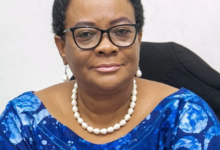
Four women centred civil society organisations and one other are calling President Nana Addo Dankwa Akufo-Addo to appoint at least 60 per cent of women out of the 30 per cent government appointees in the Metropolitan, Municipal and District Assemblies (MMDAs).
They are the Network for Women’s Rights in Ghana (NETRIGHT), in partnership with Alliance for Women in Media Africa (AWMA), the Affirmative Action Bill Coalition, and the Women’s Manifesto Coalition (WMC), as well as National Association of Local Authorities of Ghana (NALAG).

According to the group, “The unaccepted under-representation of women in decision-making positions in Ghana still remains a matter of grave concern, especially at the local level”.
At a press briefing in Accra yesterday, Programmes Manager of NETRIGHT, Ms Patricia Akapko, said Ghana’s local government system was intended
to be in line with the global trend of introducing broader efforts towards democratisation, equality and inclusion of the marginalised, especially women, in leadership, power-sharing and control of resources.
She said “while some strides have been made to address the level of disparity, these have obviously not been comprehensive in prioritising women’s equal access to leadership and positions of decision making.”
She said the country continues to accommodate gendered inequality practices resulting in low participation and representation with huge gaps in the number of women able to access public decision-making structures, election after election.
She said at the local governance level, elections were failing to deliver district assemblies that were devoid of gender marginalisation for effective local governance, which required gender sensitivity and responsiveness.
“Ghana is therefore failing to achieve a local environment for equal political engagement between women and men for genuine consensus building to strengthen democracy,” she said.
The General Secretary of NALAG, Mr Kokoro Amankwah said it was time the country took issues concerning women seriously, “let us walk the talk and do the needful.”
He said stakeholders should not undermine the relevance of how a high number of women in local governance could promote development
He therefore, called for the passage of the Affirmative Action (Gender Equality) Bill to enable women climb the ladder.
BY AGNES OPOKU SARPONG







